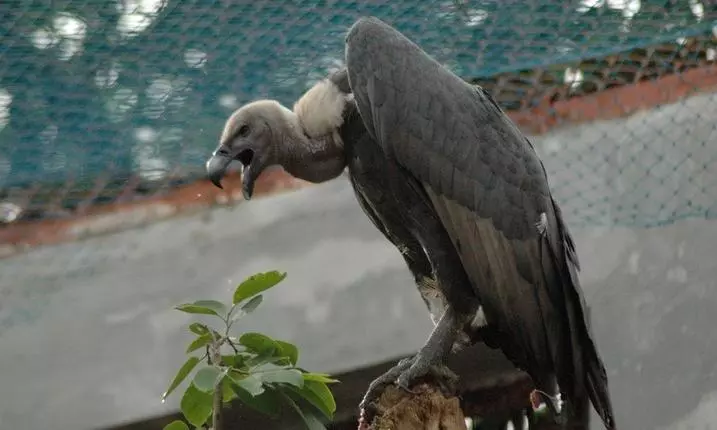Haryana Vultures to Fly in Nehru Zoo
Since 2010, the NZP has been working on vulture conservation, initially focusing on a single species

Hyderabad: The Nehru Zoological Park (NZP) in Hyderabad is set to launch a dedicated breeding programme aimed at conserving three types of vultures: White-backed Vulture, Long-billed Vulture and Slender-billed Vulture. The initiative aims to boost the population of these endangered species and will take place at the zoo's newly established breeding centre.
As part of the programme, the zoo will soon receive 24 vultures from Haryana, with the approval of the state's principal chief conservator of forests (PCCF). The transport process will begin in the next 10 to 15 days. However, the summer heat poses a challenge, as the three-day road journey requires careful planning to ensure the vultures’ safety. To mitigate risks, the birds will be transported in a truck with a team consisting of a veterinarian, biologist and keepers.
Since 2010, the NZP has been working on vulture conservation, initially focusing on a single species. With the arrival of these new vultures, the zoo is expanding its efforts to protect more endangered birds. Currently, the zoo houses nine vultures, including seven males and two females, predominantly White-backed Vultures, along with a pair of Himalayan vultures.
"We have some older vultures that are unable to breed, so the Central Zoo Authority approved the transfer of vultures from Pinjore. We are hopeful this will enhance our breeding efforts," explained Dr Sunil S. Hiremath, director of NZP.
Despite past challenges in vulture breeding, including the unfortunate death of a chick due to a birth defect, the zoo is optimistic about the new programme. One official noted, "Vultures only lay one egg a year, which makes breeding difficult. We are hopeful that with the new vultures, our efforts will be more successful this time."
The vulture breeding programme is an important step in the zoo's ongoing conservation efforts, contributing to the protection and sustainability of these endangered species.

